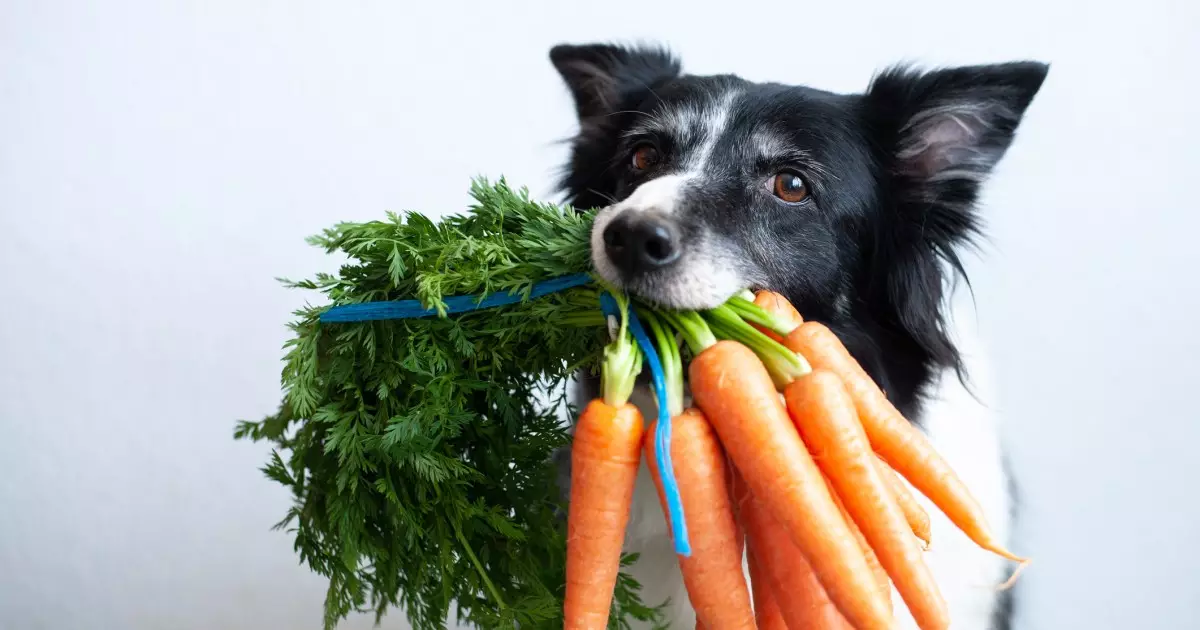As pet owners, it’s not uncommon to inadvertently share bites from our plates with our furry companions. While the traditional advice has often warned against feeding dogs human food, this practice can have substantial benefits—provided the right foods are shared. This article delves into the best human foods that can enhance your dog’s diet, explaining their nutritional values and health benefits.
Sweet Potatoes: A Nutritional Powerhouse
Sweet potatoes secure their place at the top of the list of safe foods for dogs. These versatile tubers are packed with nutrients that support overall health. They are rich in antioxidants, which are critical for combating diseases and slowing down the aging process. Important vitamins like A, C, and various B vitamins make sweet potatoes a powerhouse food to consider for daily feeding. Additionally, they contain manganese, copper, and iron, essential minerals that contribute to various bodily functions. The dietary fiber found in sweet potatoes can also help regulate digestion, making them an excellent choice for dogs with gastrointestinal issues. You can serve them baked, microwaved, or even sliced and baked into chips, offering a healthier alternative to commercial dog treats.
Oily Fish: A Source of Omega-3 Fatty Acids
Another remarkable addition to your dog’s diet is oily fish, such as salmon, sardines, and anchovies. These fish are renowned for their high omega-3 fatty acid content, particularly DHA and EPA. Omega-3s are known to play a crucial role in promoting skin health and alleviating allergies. They also contribute to cardiovascular health and have been associated with improved cognitive function in pets. Whether you choose to serve fish fresh, canned, or in pouches, it is an enjoyable treat most dogs will relish, bringing both taste and health benefits to their diet.
Carrots are not just a favorite snack for humans; they are also a beneficial treat for dogs. Rich in vitamins A, K, and C, these crunchy veggies serve as a nutritious snack and help support vision and heart health while regulating blood sugar levels. They are versatile in preparation: serve them raw, frozen into ice cubes for a summertime treat, or cooked and mixed with their regular meals. Carrots stand out not just as a tasty option, but also as a healthy addition to any dog’s diet.
Broccoli: The Antioxidant Champion
Broccoli is gaining recognition for its potential health benefits in canines. This green vegetable is filled with vitamins and has been shown to have anti-cancer properties. It assists in treating various health issues, including infections and skin problems. Dogs can enjoy broccoli both raw and cooked. Offering raw florets as treats is cost-effective and delivers substantial health benefits, while steamed broccoli can be mixed into meals for added nutrition.
The Green Goodness of Kale
Though not every dog responds well to kale, this leafy green vegetable can be an excellent source of nutrients when prepared correctly. Rich in antioxidants, fiber, and essential vitamins, kale has the potential to reduce the risk of cancer while providing nutrients that prevent heart disease. Medium-sized dogs may enjoy finely chopped, sautéed kale as an addition to their meals, enhancing their overall diet with minimal additional calories. However, it’s essential to consult with a veterinarian if your dog has specific health issues, like bladder stones.
Beans: Nature’s Protein Source
Beans—including black beans, soybeans, and garbanzo beans—are often overlooked in canine diets yet offer substantial health benefits. They are excellent sources of fiber, which can help regulate blood sugar levels, thus preventing insulin resistance and diabetes in dogs. Rich in protein and essential minerals, beans can fortify your dog’s immune system while supporting weight management.
Quinoa, often touted as a superfood for humans, is also a fantastic grain for dogs. It is one of the few plant-based sources of complete protein, making it an important dietary component for dogs requiring additional protein for muscle maintenance and recovery. Quinoa is easy to prepare and can be served with a variety of protein sources like fish or meat, along with vegetables for a balanced homemade meal.
Last but not least, kelp is a nutrient-dense addition that many pet owners might not consider. This sea vegetable is rich in essential minerals, such as calcium and iodine, and has numerous health benefits, including immune support and anti-inflammatory properties. Added in powdered form over dog food or mixed into homemade meals, kelp can help maintain your dog’s overall well-being and vitality.
Incorporating certain human foods into your dog’s diet can promote better health and enhance their quality of life. By understanding which foods are beneficial, such as sweet potatoes, fish, carrots, broccoli, kale, beans, quinoa, and kelp, you can provide your furry friend with a diverse and nutritious diet that complements their commercial food. Always remember to introduce new foods gradually and consult with your veterinarian to ensure the best dietary choices for your dog.

